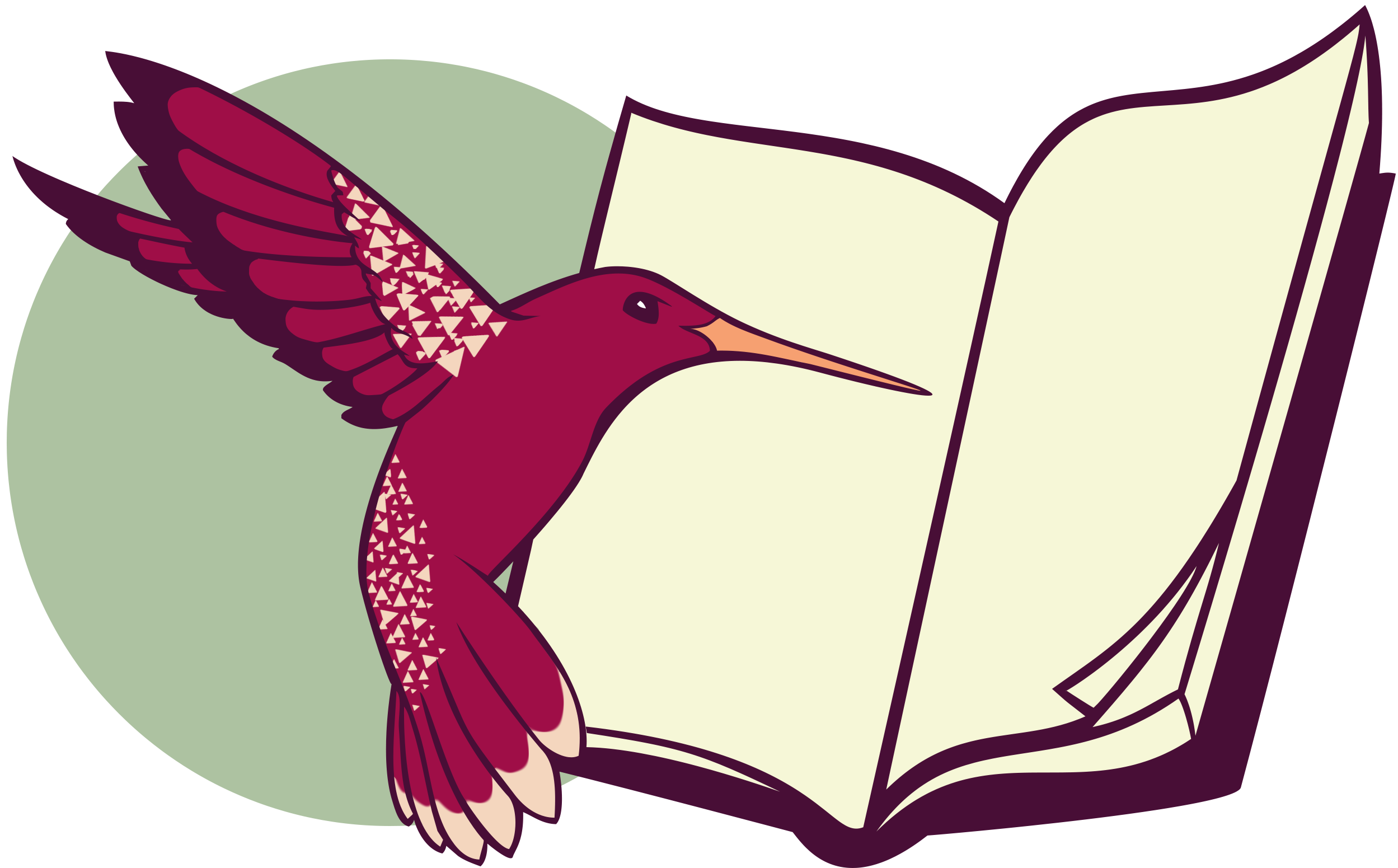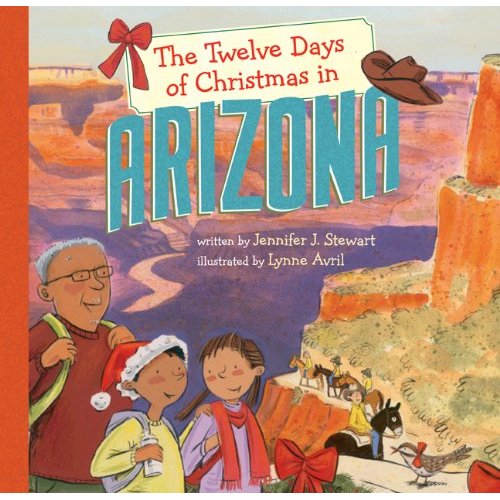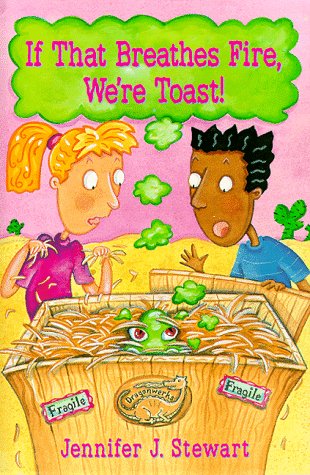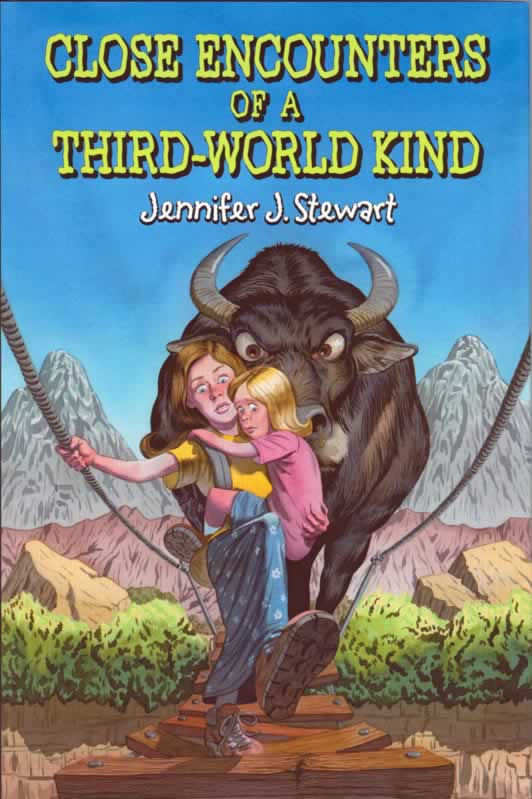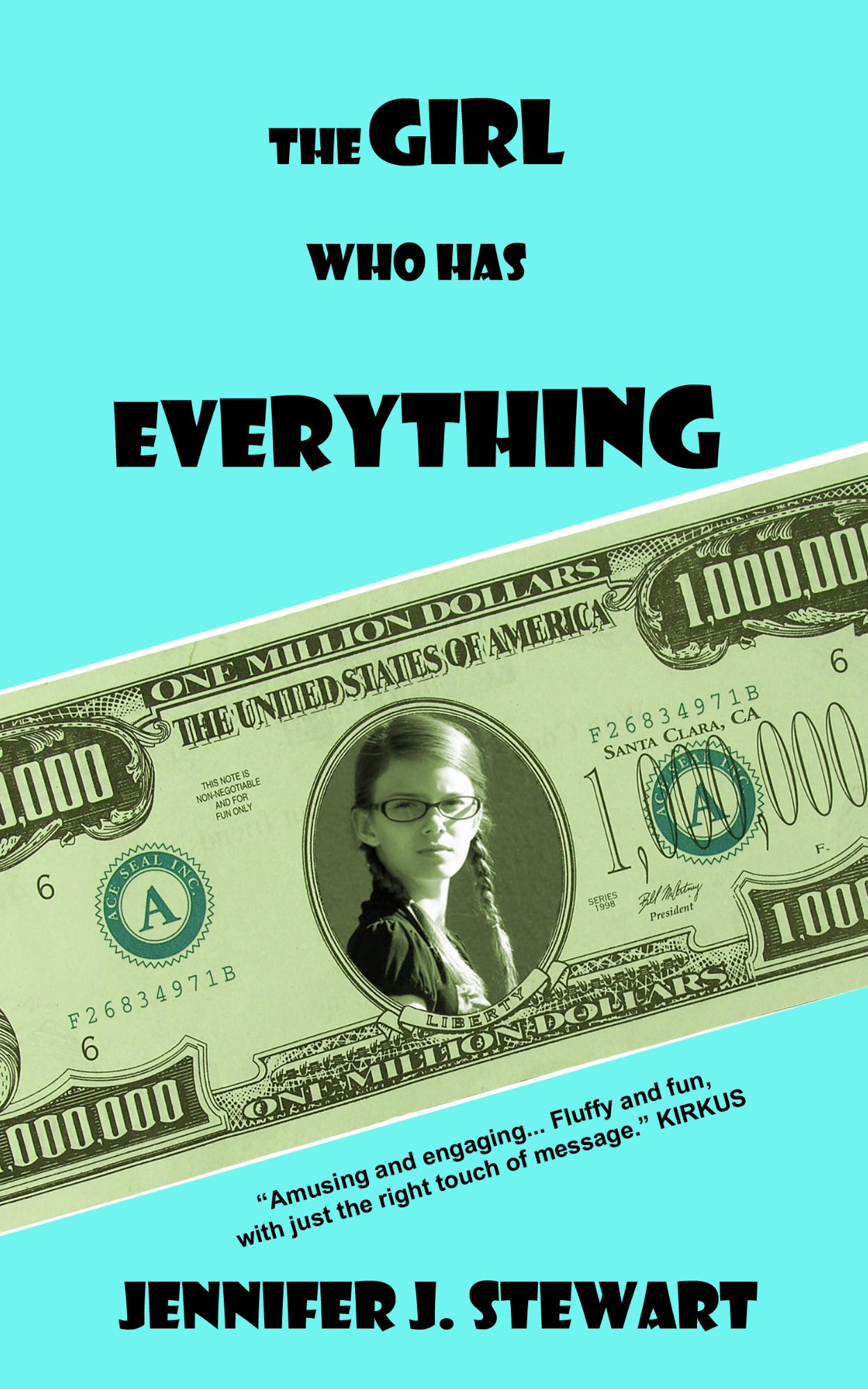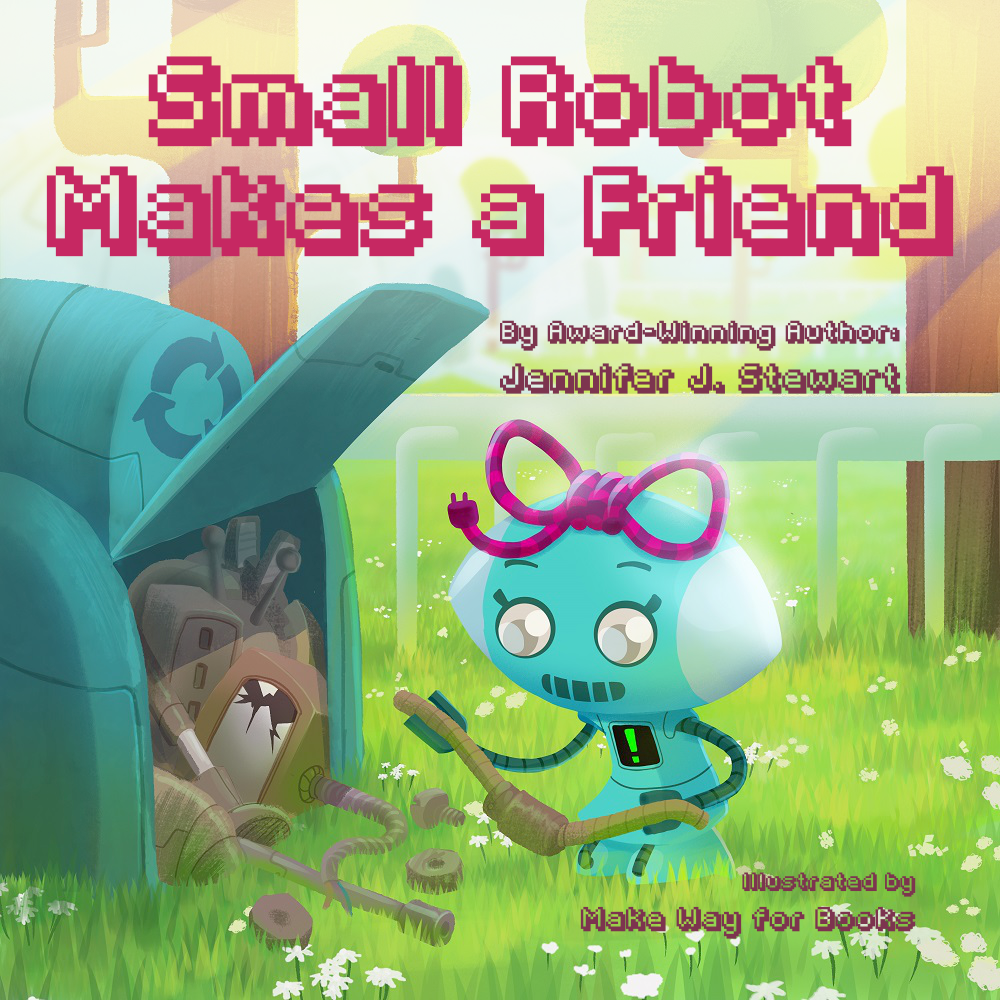Carol Smalley asks the questions. The answers may help, particularly if you contend daily with small children.
Please share the way you want your name printed in the roundtable transcript, and your background in children's writing, areas of interest, published books, and unpublished creative efforts with the group.
I write seriously funny books for children. I’ve published middle grade novels: The Girl Who Has Everything, If That Breathes Fire, We're Toast!, and Close Encounters of a Third-World Kind. The last is based upon my family’s adventures as medical volunteers in Nepal. I’m working on a new novel, and I’m also trying picture books.
Why have you chosen to write children's materials?
Most children’s books have happy or at least hopeful endings. I like that. I have always read and enjoyed children’s books, even as an adult, even before I tried to write one. So, it seemed to come naturally. But the real reason? Even though my driver’s license says I am 43, I think my mental age is about 12. When you write for children, being immature helps. What can I say? I like booger jokes.
Do you write on a full-time basis? Is writing a passionate "side"? How do you find time to write? What is a typical day like for you?
Someday I dream of writing full-time, but for now, I have a family to run. I also volunteer. If I get in three hours of writing, that is excellent. I am not only passionate about writing; I am driven. I could not get books published without being very goal-oriented.
I write when my children are in school. When my youngest entered preschool, I had two hours and 45 minutes a day to myself. I finished the first draft of a novel in three months. It can be done!
Schedule:
5:20-8:00 a.m.: Get up, get children up, feed them, get them off to school, check email obsessively
8:15-8:45 a.m.: Walk the dog
8:45 a.m.-9:00 a.m.: Check email obsessively
9:00-Noon: Write and do whatever crash and burn deadline has moved into top priority on my TO DO list
Noon : Forget to eat lunch
12:30 p.m. Remember to eat lunch, usually something fast like a cheese stick and applesauce
1 p.m.-2:45 p.m.: Do the rest of the things that have to get done
2:45 p.m.-6:00 p.m.: Retrieve children from schools, take them to riding, piano, singing lessons, gymnastics class, etc. Check email obsessively.
6:15 p.m. Eat dinner, which husband has prepared. (I am a terrible cook.)
7:00-8:30 p.m. Free time
8:45 p.m. Some reading, then crash
Except this is a lie. I have no typical day. You have to find the time to write when you are fresh. I’m a morning person. I like mornings, so that’s my time to be creative. I am not a believer in the write every day rule -- I almost never write on weekends. That’s family time.
What were your favorite children's books as a child?
L. Frank Baum’s OZ series, Edward Eager, E. Nesbit, Joan Aiken -- and I read them over and over and over. I liked magical books. As a teen, I read lots of science fiction.
What are your favorite children's books/authors now?
In no particular order: Richard Peck, Laurie Halse Anderson, Meg Cabot, David Lubar, Louise Rennison, Dav Pilkey (long live Captain Underpants!), Walter Dean Myers, Phillip Pullman, Sid Fleischman, and Caroline B. Cooney.
Where do you find your sources or sparks of creativity?
Mostly, it is a combination of delving back to feelings I had when I was young, plus wondering what it would be like if...? I guess I like being an explorer, only without the extreme weather and harsh conditions.
What are your favorite resources for inspiration and information?
The SCBWI Web site, Authors Guild newsletter, The Writer magazine from time to time -- I also network with writing friends.
Do you belong to a critique group? Do you meet online or in person? What value do you feel it provides? How did you find or start this group?
My writing group meets about every other week in Basha’s grocery store. Now that the clerks are used to us, they don’t get all uptight when we talk about killing off a character or two. There are four of us: C. S. Adler, Patricia McCord, Janni Lee Simner, and me. We take turns reading out loud, then tell each other what we think, what can be improved, and offer suggestions. We are also cheerleaders -- we’ll get each other out of the rejection dumps and we always celebrate our successes with chocolate. If our schedules don’t synchronize, we critique via email, but that’s rare.
Do you use the services of a consulting editor or proofreader?
Nope. I pretty much have a photographic memory when it comes to spelling. My manuscripts are very clean.
Do you use an agent? Why (or why not)?
Yes, I use [an agent]. My time is valuable -- I want to save it for writing, rather than marketing. [My agent] knows the editors and their wants. I don’t want to have to have that kind of encyclopedic knowledge.
Are you a quick writer or a long-term crafter? What is a typical start to finish cycle for you? How many transformations does your writing go through from first draft to final manuscript? For those among you who are published, how much additional work is done after your work has been placed under contract with a publisher?
I can usually get a first draft done in six months to nine months. I will rewrite once or twice on my own, then send the manuscript to my editor. The upfront process has now been shortened, because I can get a contract based on three chapters plus synopsis. (If I get a contract, I generally have six months to complete the manuscript). Once I’ve given my editor the whole manuscript, it’s likely that I will have two more rewrites, one major, one minor, plus one last chance to correct with galley proofs. The major rewrite will come in the form of a single spaced letter from my editor laying out her overall comments, plus the manuscript studded with yellow sticky notes containing very specific questions for me. The whole process generally takes a year and a half to two years per book.
How do you research a book idea for competitive ideas or potential interest?
Hmm... I’ve never done this. I don’t think it applies so much to me as I write fiction.
How much background research is required before you take pen to paper?
I could not have written Close Encounters of a Third-World Kind without having lived it. In 1999, my husband and I took our three kids to Nepal where we worked as medical volunteers. We had to hike to remote villages. Hospitals had no running water, and only sometimes electricity. I kept a diary, because I knew I had to write about the experience someday.
But mostly, I just make things up.
How important is that "first" page? What strategy do you use to capture the editor's attention with your opening?
The most important thing is voice. And that has to be there right from the get go. That voice is who your reader is going to trust. It had better be believable. I make sure I start when the character is having some sort of change thrust upon him or her, in the middle of the action.
If your manuscript is off to a slow start, often you can cut that first chapter and not lose by it.
What rules do you engage to create movement in your stories? How do you get children (and their parents) to turn to the next page?
I want my readers to have to find out what happens next. I keep chapters to no more than 10-12 pages, often much shorter. Cliffhangers rock!
As writers, what tools do you use to think visually?
I doodle obsessively. I do break picture book texts into illustration chunks, and sometimes I will even write out everything that should be drawn on the page, to see if it works, even sketch it. With novels, I really like the "less is more" approach to description. Like if you absolutely must describe a sunset (and most of the time you must not), it has to be in kid terms, such as, the sunset looked like rainbow sherbet spread across the sky. And I would only use that to reinforce something my character was doing, like she has finished dinner and is contemplating dessert.
Do you have a tried-and-true strategy for creating your stories' plots?
I wish I did. Plotting is the hardest thing for me. I am the kind of author, who if I was going on a road trip, I’d be jumping in my car without a road map and heading for Anchorage. I’d have this vague idea that I should go north. Eventually I get there, and find it was worth the trip.
This, as you can well imagine, can drive my editor nuts.
Do you find it difficult to integrate dialogue into your writing? Secrets you can share?
It’s more like I’m integrating the other things into the dialog, because I usually start with conversation. My characters talk to me all the time. Sometimes, if I’m in my minivan, I’ll call my answering machine, so I don’t lose a particularly fine bit. Go to plays. High school plays are cheap. You want to educate your ear, so that when you read your dialog out loud -- which you should do -- you can hear if it clunks. (You can also listen to the conversations around you, spying for a YA novel).
How do you know when it is time to send out your manuscript to potential editors?
When an excerpt places or gets honorable mention in a writing contest. Or when my writing group loves it, and can’t think of anything I should change. When I can’t think of anything to change!
Do you have a favorite rejection letter story?
Once I got a three-page handwritten rejection letter on a YA short story. I think of rejection to acceptance as a kind of continuum: you know, when I started out, I would get form rejection letters. Then, I started getting “Sorry” scrawled at the bottom of the form letters. Then, “Thank you.” Then, “Try us again.” Anyway, after that three-page rejection letter, I knew I was darn close, and guess what? The next magazine I sent it to bought it.
How many manuscripts do you have started that have never made it to that final stage? Why? Will you revisit them at some point?
Remarkably very few. Some picture book texts are not circulating right now because “the market is soft," which is really a euphemism for crappy, but they are done. Short stories I finish because they are, well, short. Oh, I do have an adult novel I never finished, and I probably never will. Writing for children is so much more fun
How do you continue to grow professionally in your craft?
I read, read, read. This year I went to national Society of Children’s Book Writers & Illustrators conference in New York. It was fun, and I got to see my editor, but I think that structured writing retreats, again sponsored by SCBWI, are more helpful.
Do you have a mentor? How has he or she influenced your work? What was the best advice you received?
I don’t have a mentor. I think I would like one, though! Sometimes I write to authors and tell them how much I liked their books. But I usually don’t confess that I write books, too.
My agent, since she is a former editor, will go over picture book manuscripts very carefully, and I do like that. I have learned a lot, just seeing what she thinks should be cut or expanded.
How do you overcome the feelings of isolation or working alone?
Are you kidding? I love working alone! I have a husband, three kids, a horse, a dog, a cat, two lovebirds, etc. My computer is my refuge! And if I get bored or lonely, I can always email a writing buddy. I also do quite a bit of volunteer work with a non-profit organization -- Make Way for Books -- and that gets me out of the house.
How do you promote yourself? Do you do library and school visits? Do you have a Web site (please share)? Special promotion items?
When my first book -- If That Breathes Fire, We're Toast! -- came out, I visited bookstore managers and set up some signings. After those, a few librarians called me and asked me to come speak for free at their schools, which I was happy to do as I learned the ropes. I was really nervous at first, I mean I could plug toilets I was so nervous, but now I am like one of those dolls, you pull the string at the back and I talk!
Mostly, I get invitations to speak through word of mouth and I prefer it that way. I do young authors conferences, school visits, book fairs, and also present to adults, talking about writing for children. I refer all requests to my publisher, Holiday House, and the nice author appearances arranger negotiates my rates.
You can visit my website at www.jenniferjstewart.com—please, please remember that middle initial “j” or you will get bare naked people. That is why I use the middle initial by the way -- I don’t like being confused with that Jennifer Stewart.
When I’m signing my books, I often set out a few kid friendly items: a dragon wearing real fake diamond earrings and a bowl full of dragon "eggs" (jelly beans). When my new book comes out, I’ll add a singing bowl from Nepal.
Do you have any final words of advice to share with new or growing writers?
Read what you want to write. If it isn’t your favorite thing to read, perhaps you shouldn’t be writing it.
Make up everything but the feelings. The emotion behind your writing has to ring true.
Don’t ever sit on your pencil.
© by Jennifer J. Stewart. All rights reserved. Website designed by author, who is solely irresponsible for its contents. Logo design by Amy Stewart. Jennifer J. Stewart respects your privacy, and will never to pass on your details to anyone.
